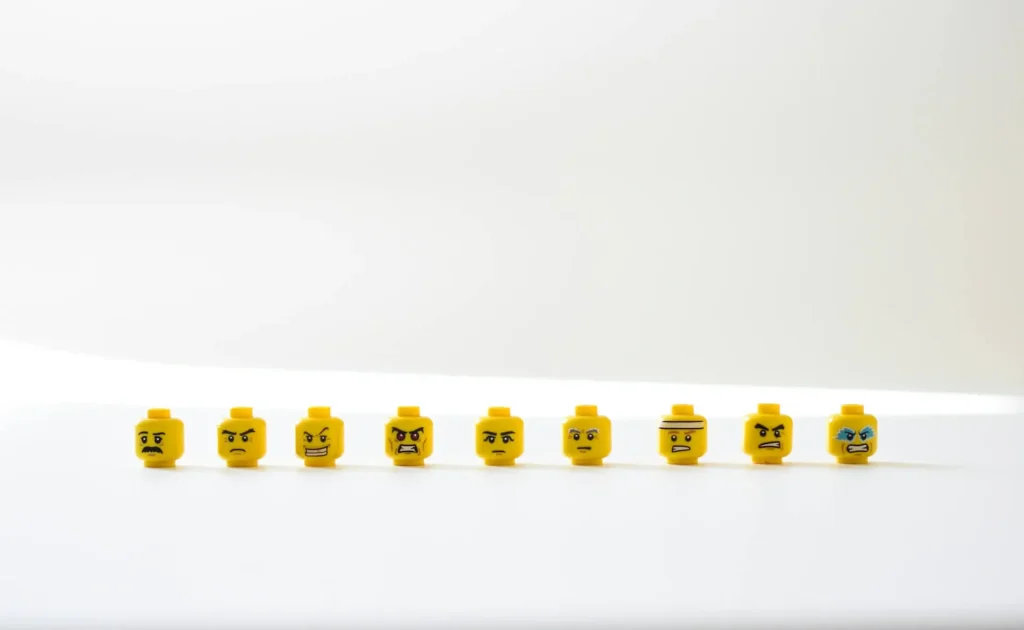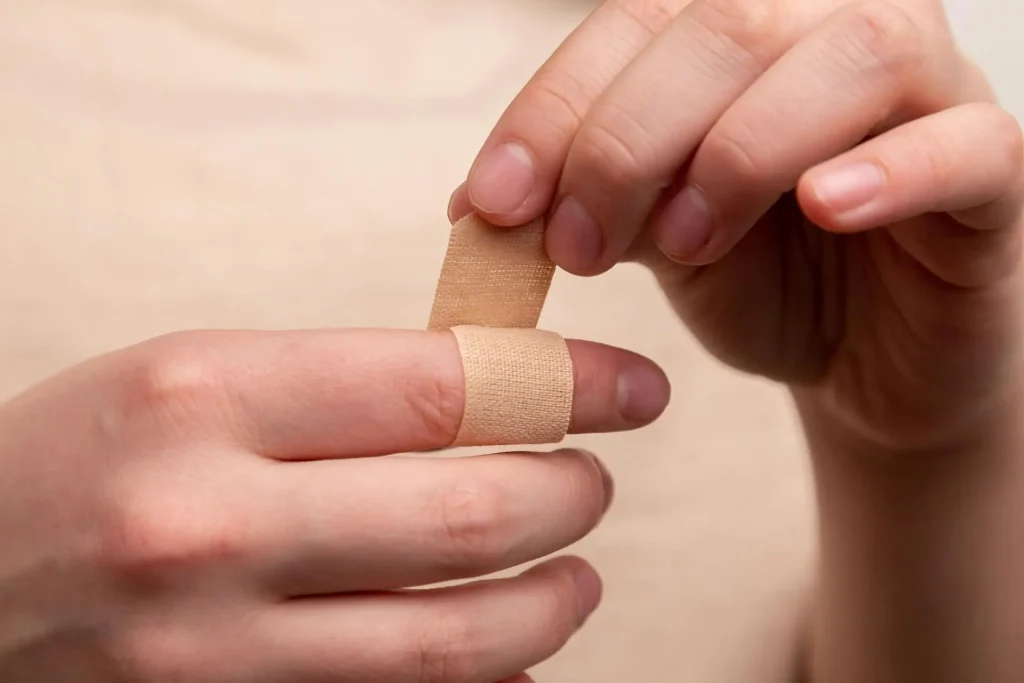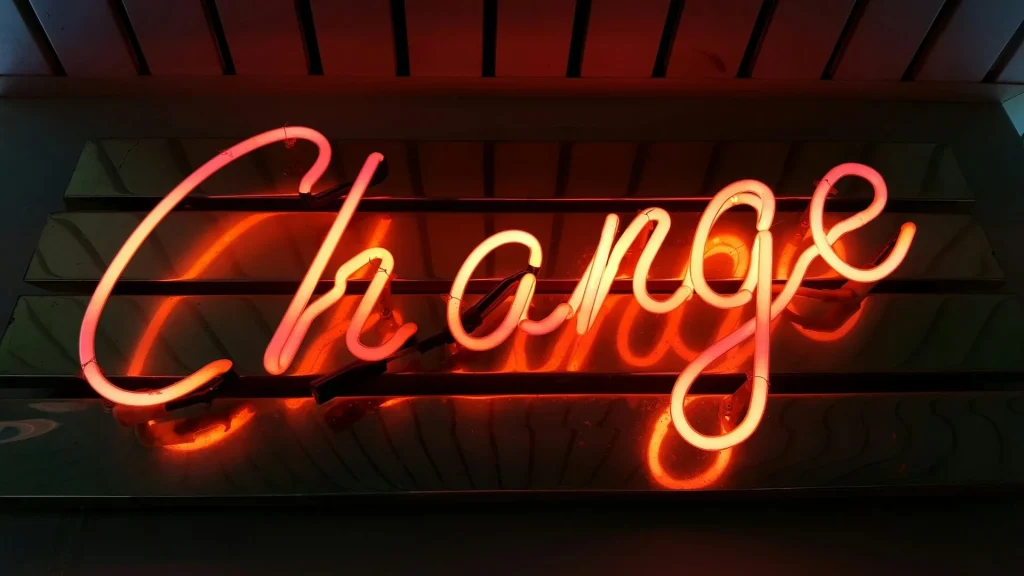Porn addiction is a growing concern that can deeply affect an individual’s mental health, relationships, and overall quality of life. It’s a challenge that requires both understanding and action to recover.
In this guide, we’ll explore practical strategies to quit porn addiction, navigate the recovery process, and provide support for those who are struggling. Whether you’re seeking help for yourself or looking to assist someone else, this post offers actionable steps and valuable insights to guide you through the journey toward a healthier, more fulfilling life.
Download the printable «Practical Guide to Overcoming Porn Addiction» PDF for free.
What is Porn Addiction, and Why is it Bad?
Porn addiction is a compulsive behavior where individuals find themselves repeatedly drawn to consuming pornography, even when it starts to interfere with their everyday life. Like other forms of addiction, it becomes a way for the brain to seek out short-term pleasure while neglecting long-term well-being.
The addiction often begins with casual consumption, but over time, it can spiral into a need for more frequent, more explicit, or more intense material to satisfy the brain’s desire for dopamine — a chemical linked to reward and pleasure. This continuous cycle can become hard to break, as it starts to feel like a quick escape from stress, boredom, or emotional struggles. But what makes porn addiction truly harmful?
Porn addiction can disrupt a person’s mental, emotional, and social well-being. It often leads to a loss of control, feelings of guilt or shame, and interference with personal relationships and daily responsibilities. While it might seem harmless at first, over time, it can deeply affect the brain and overall quality of life.
Symptoms/Signs of Porn Addiction
Recognizing the symptoms or signs of porn addiction is the first step in understanding its impact. While occasional pornography use might not indicate a problem, certain behaviors suggest a deeper issue that could be harmful over time.

Here are the key symptoms and signs to look out for:
1. Preoccupation with Pornography. One of the most telling signs of addiction is an overwhelming preoccupation with consuming porn. This includes thinking about it frequently throughout the day, even in situations where it’s inappropriate or distracting.
2. Escalation of Content. Over time, individuals may seek more extreme or explicit material to achieve the same level of satisfaction. This escalation is common in addictions as the brain builds tolerance to previous stimuli.
3. Difficulty Controlling Use. Those experiencing addiction often attempt to cut down or stop using porn but struggle to do so. Failed attempts to quit despite wanting to can indicate a loss of control.
4. Neglect of Responsibilities. As porn consumption increases, people might begin to neglect their personal, work, or social obligations. Missing deadlines, skipping events, or withdrawing from loved ones are common symptoms.
5. Emotional Distress or Withdrawal. Addicted individuals may feel anxious, irritable, or depressed when they are unable to access pornography. This emotional distress resembles withdrawal symptoms found in other addictions.
6. Secrecy and Shame. Many people with porn addiction feel embarrassed or ashamed about their consumption. They may hide their behavior from friends, family, or partners, leading to more isolation and guilt.
7. Interference with Real-Life Relationships. Porn addiction can damage relationships. Whether it’s a lack of intimacy, difficulty connecting with partners, or even reduced interest in real-world experiences, addiction can have serious consequences for emotional and physical relationships.
Effects of Porn Addiction
Porn addiction can have far-reaching effects on both the mind and body, often creeping into various aspects of daily life. Though it may start as a form of escapism or a way to satisfy curiosity, over time, the negative consequences can become overwhelming.

Mental and Emotional Effects
- Increased Anxiety and Depression: Overuse of pornography can fuel feelings of isolation, shame, or guilt. These emotions can contribute to or worsen anxiety and depression, leaving individuals in a loop of emotional distress.
- Decreased Motivation: As the brain becomes wired to seek pleasure from pornography, everyday activities and personal goals might start to feel less rewarding, leading to decreased motivation and productivity.
- Emotional Numbness: Over time, the brain can become desensitized to everyday joys, leaving individuals feeling emotionally flat or detached from real-life experiences.
Effects on Relationships
- Reduced Intimacy: Porn addiction can create unrealistic expectations of sex and intimacy, making real-life relationships feel less satisfying or exciting. This often leads to a breakdown of emotional and physical closeness with a partner.
- Trust Issues: Secrecy surrounding porn use, especially when hidden from a partner, can erode trust in relationships and lead to feelings of betrayal.
- Withdrawal from Real Connections: Addicts may prioritize porn over spending quality time with family or friends, leading to social isolation and strained relationships.
Physical Health Effects
- Sexual Dysfunction: Some individuals may experience difficulties with arousal or sexual performance in real-life situations due to their reliance on pornographic content.
- Sleep Disruption: Late-night bingeing or extended viewing sessions can interfere with sleep patterns, leading to insomnia or poor-quality sleep, which in turn affects mood and physical health.
Impact on Productivity and Daily Life
- Reduced Focus and Performance: Constant distractions from cravings to consume porn can lead to decreased concentration at work or school, causing a drop in performance and missed opportunities.
- Time Mismanagement: Hours spent watching porn can gradually eat into time that could be used for personal development, hobbies, or spending time with loved ones.
How to Quit Porn Addiction
Quitting porn addiction can feel like a daunting task, but with the right strategies and a commitment to change, it is absolutely possible to regain control. Below are practical steps you can take to stop watching porn and break free from the addiction:
1. Recognize the Triggers. The first step in quitting is becoming aware of what leads to porn consumption. Triggers might be stress, boredom, loneliness, or specific times of day. Keeping a journal to track when and why you turn to porn can help you identify patterns that need to be addressed.
2. Practice Mindfulness. Mindfulness techniques can help disrupt the automatic urge to watch porn. Simple practices like deep breathing, meditation, or pausing for a few minutes when the cravings hit can help you become more aware of your impulses and take control before acting on them.
3. Set Boundaries and Limit Access. One practical way to quit is by limiting access to pornography. This could include:
- Installing website blockers or parental control software on devices.
- Reducing screen time, especially during hours when cravings tend to hit.
- Creating a more structured daily routine to avoid idle time that leads to porn consumption.
4. Replace Porn with New Habits. Breaking the habit of watching porn requires filling the void it leaves. Start engaging in activities that promote well-being and satisfaction, such as:
- Exercise: Physical activity boosts endorphins and helps relieve stress.
- Hobbies: Channel your energy into a new skill, like learning an instrument or painting, to keep your mind occupied.
- Socializing: Strengthening your real-life connections can provide the emotional support that porn fails to offer.
5. Seek Support. Quitting porn addiction is easier when you have support. Confide in someone you trust, whether it’s a close friend, partner, or family member. If personal conversations feel too difficult, you can join online communities or forums where others share similar struggles. These support systems offer encouragement, accountability, and advice.
6. Consider Professional Help. If quitting on your own feels overwhelming, therapy is a great option. Therapists specializing in behavioral addictions can provide tools to help you understand and overcome the root causes of the addiction. Cognitive Behavioral Therapy (CBT) is particularly effective in helping individuals reframe their thought patterns and break the addictive cycle.
7. Commit to the Process. Overcoming porn addiction is not an overnight fix. It’s a gradual process that requires commitment. Setbacks may happen, but it’s important to stay patient with yourself. Each day without porn is progress, and with time, the cravings will diminish.
Porn Addiction Recovery
Recovering from porn addiction is more than just stopping the behavior; it’s about healing both the mind and body, rebuilding relationships, and learning healthier ways to cope with life’s challenges. Recovery is a long-term process that requires patience, self-compassion, and consistent effort.
Porn addiction recovery involves more than quitting the habit—it requires addressing the underlying triggers, managing urges, and reshaping the brain’s response to pleasure. Recovery is not linear. There may be ups and downs, but staying committed to the journey is key. Recovery also involves shifting from short-term rewards (like porn) to longer-lasting fulfillment through healthier relationships and personal growth.

Stages of Recovery
Awareness and Acceptance: The first stage is acknowledging that addiction exists and accepting the need for change. This involves understanding how porn has affected your life and committing to the process of recovery.
Detox and Abstinence: In the early phase, the goal is to abstain from porn. This detox period may bring cravings and withdrawal symptoms like irritability or anxiety, but it’s essential to stay focused on healing.
Rebuilding Healthy Habits: After detox, focus on developing new habits and coping mechanisms, like engaging in physical activity, spending more time with loved ones, or pursuing new hobbies.
Long-Term Maintenance: Long-term recovery is about maintaining a balanced life. This includes reinforcing new behaviors, strengthening relationships, and managing any emotional or psychological challenges that arise.
Healing from the Effects
Mental and Emotional Recovery: As you recover, your brain begins to heal from the impact of porn addiction. Emotional regulation improves, allowing you to experience deeper satisfaction from everyday activities and relationships.
Rebuilding Relationships: Recovery often involves repairing the damage done to relationships. This can mean rebuilding trust with a partner, reconnecting emotionally, and developing healthier patterns of intimacy.
Restoring Self-Esteem: One of the benefits of recovery is regaining self-confidence and a sense of control over your life. As you break free from the addiction, you’ll likely feel more empowered and emotionally stable.
Resources for Recovery
Counseling and Therapy: Therapy can provide a safe space to explore the emotional roots of addiction and develop strategies to prevent relapse. Cognitive Behavioral Therapy (CBT) is one of the most effective treatments for behavioral addictions.
Online Support Groups: Joining recovery communities, whether in person or online, can offer a sense of accountability and shared experiences. Support groups provide an opportunity to connect with others going through the same challenges.
Apps and Tools: There are various apps designed to help individuals track their progress, set goals, and access resources to stay committed to recovery. These tools can act as reminders to stay on track and celebrate small victories along the way.
Staying Committed to Recovery
True recovery is a long-term commitment. Setbacks may happen, but the key is not to give up. Each step forward is progress, and with time, the desire for porn will diminish. Surround yourself with positive influences, keep focusing on your goals, and celebrate each milestone.
Porn addiction recovery is not just about breaking the habit but also about regaining a sense of control, rebuilding relationships, and living a healthier, more fulfilling life.
Porn Addiction Treatment and Therapy
For many, overcoming porn addiction may require more than willpower alone. Professional treatment and therapy provide structured support, effective strategies, and guidance that make the process more manageable and sustainable. Whether you’re seeking treatment for yourself or helping someone else, here’s an overview of available options.
Cognitive Behavioral Therapy (CBT)
Cognitive Behavioral Therapy (CBT) is one of the most common and effective methods for treating porn addiction. CBT helps individuals identify negative thought patterns and behaviors that fuel addiction, and then replaces them with healthier alternatives. Through this process, individuals learn to manage cravings, deal with emotional triggers, and develop coping strategies for stress and anxiety.
12-Step Programs and Support Groups
12-Step Programs like Sex Addicts Anonymous (SAA) or similar recovery groups offer a structured pathway to recovery. These programs are based on peer support and shared experiences, which can be incredibly powerful in creating accountability and a sense of community. Many individuals find comfort in knowing they are not alone and that others have faced similar challenges.
Support Groups: Both online and in-person support groups provide a platform to share experiences, setbacks, and triumphs in a non-judgmental setting. These groups often focus on encouraging openness, honesty, and continuous progress.
Individual Therapy
One-on-One Counseling: Therapy with a licensed counselor or therapist can be tailored to your personal experiences, helping you explore the deeper emotional or psychological reasons behind your addiction. Therapists specializing in sexual or behavioral addictions can provide personalized strategies that work best for your unique situation.
Trauma-Focused Therapy: If porn addiction is linked to unresolved trauma, trauma-focused therapy can be particularly helpful. This approach addresses past experiences that may be contributing to addictive behaviors.
Mindfulness-Based Therapy
Mindfulness and Meditation: Mindfulness-based practices help individuals focus on the present moment, breaking the cycle of automatic behavior and reducing impulsivity. Techniques like meditation and mindful breathing are often incorporated into therapy sessions to help manage cravings and reduce stress.
Acceptance and Commitment Therapy (ACT): ACT combines mindfulness with behavioral therapy, helping individuals accept their cravings without acting on them. This approach emphasizes living according to one’s values and goals, rather than being driven by impulses.
Online Therapy and Recovery Programs
Teletherapy: With the rise of online therapy platforms, individuals now have access to licensed therapists from anywhere in the world. Online therapy offers convenience and privacy, making it easier to seek help without the barriers of traditional in-person sessions.
Online Recovery Courses: Various platforms offer structured recovery programs with video lessons, workbooks, and guided exercises. These courses often include strategies for self-reflection, goal-setting, and long-term management of addictive behaviors.
Medication as a Complement to Therapy
In some cases, medication may be prescribed to manage underlying mental health conditions that contribute to porn addiction, such as depression or anxiety. Medications that regulate dopamine or serotonin levels can help reduce cravings and support overall mental health during recovery. However, medication is typically used as a complement to therapy, not as a stand-alone solution.
Porn addiction treatment offers a wide range of approaches, from therapy to support groups, each designed to address different aspects of addiction. Whether through CBT, mindfulness, or online recovery programs, the goal is to equip individuals with the tools to regain control, rebuild relationships, and live a more fulfilling life. The key is finding the right treatment approach that resonates with you.
How to Help Someone with a Porn Addiction
Supporting someone through porn addiction can be challenging, but your involvement can make a significant difference in their recovery journey. Here’s a guide on how to offer effective and compassionate support.
Download the printable «Practical Support for Porn Addiction» PDF for free.
Approach with Empathy and Understanding
Listen without Judgment: Approach the topic with sensitivity. Allow the person to express their feelings and struggles without interruption or judgment. Your goal is to provide a safe space for them to share their experiences.
Avoid Blame: Addiction can often be accompanied by feelings of shame or guilt. Avoid placing blame or making them feel worse about their situation. Instead, focus on offering support and understanding.
Encourage Professional Help
Suggest Therapy: Gently encourage the person to seek professional help. Therapy, such as Cognitive Behavioral Therapy (CBT) or counseling with a specialist in sexual addiction, can provide them with effective tools and strategies for recovery.
Provide Resources: Share information about available treatment options, support groups, and online resources. Offer to help them find and connect with therapists or support groups if they are open to it.
Support Healthy Habits
Promote Positive Activities: Encourage the person to engage in activities that foster well-being and personal growth. Suggest hobbies, physical exercise, or social activities that can help divert their focus from pornography and improve their quality of life.
Be a Positive Influence: Model healthy behaviors and demonstrate positive coping mechanisms. Your own lifestyle choices and attitudes can be a source of inspiration and support for them.
Set Boundaries and Manage Expectations
Establish Boundaries: Clearly communicate your own boundaries and limitations. Supporting someone with an addiction can be emotionally demanding, and it’s important to take care of your own well-being as well.
Be Patient: Recovery is a process that takes time. Understand that there may be setbacks and challenges along the way. Your patience and encouragement can be crucial in helping them stay committed to their recovery journey.
Encourage Open Communication
Foster Honest Dialogue: Create opportunities for open and honest conversations about their progress and challenges. Regular check-ins can help them feel supported and provide an avenue for discussing any difficulties they might be facing.
Celebrate Progress: Acknowledge and celebrate their achievements, no matter how small. Recognizing their progress can boost their motivation and reinforce positive changes.
Educate Yourself About Addiction
Learn About Porn Addiction: Educate yourself on the nature of porn addiction and the recovery process. Understanding the challenges they face can make you a more informed and effective supporter.
Understand the Impact: Recognize how addiction can affect their mental health, relationships, and daily life. This awareness can help you approach the situation with empathy and provide appropriate support.
Seek Support for Yourself
Join Support Groups: If you find the situation overwhelming, consider joining support groups for friends and family of individuals with addiction. These groups can offer advice, encouragement, and a sense of community.
Helping someone with a porn addiction requires compassion, patience, and practical support. By fostering a supportive environment, encouraging professional help, and setting healthy boundaries, you can play a crucial role in their recovery journey. Remember, your support can make a significant difference in their path to overcoming addiction and rebuilding their life.

Conclusion
Porn addiction is a complex issue that affects many aspects of life, from mental health and relationships to personal well-being and daily functioning. Recognizing the symptoms, understanding the effects, and exploring treatment options are crucial steps in addressing and overcoming this addiction.
Recovery is a journey that involves more than just quitting the behavior; it’s about healing, rebuilding, and finding new paths to fulfillment. By acknowledging the problem, seeking professional help, and adopting healthy habits, individuals can break free from addiction and reclaim their lives.
For those supporting someone through this process, offering empathy, encouraging professional help, and setting clear boundaries can make a significant impact. Remember, recovery is a long-term commitment and requires patience and ongoing support.
Whether you are seeking help for yourself or supporting someone else, know that change is possible. With the right strategies and a strong support system, overcoming porn addiction and leading a healthier, more satisfying life is achievable.
Take the first step today towards a more balanced and fulfilling life, and remember that support is available every step of the way.
